After limited progress at COP30, the message is clear – to protect supply chains, business must take the initiative on sustainability
Álvaro Moreira, Senior Manager for Large Farm Programmes and Partnerships at BCI, reflects on COP30.
Read moreÁlvaro Moreira, Senior Manager for Large Farm Programmes and Partnerships at BCI, reflects on COP30.
Read moreThe performance monitoring data management system of the Better Cotton Initiative (BCI) has been accredited by third-party auditor ADC Consulting, which labelled the organisation’s management process “robust, transparent, and broadly compliant with international data-quality standards”.
BCI commissioned ADC to conduct an independent audit of the management of its Results Indicator (RI) data, which measures progress towards sustainability improvements in cotton farming communities associated with the implementation of the BCI Standard System.
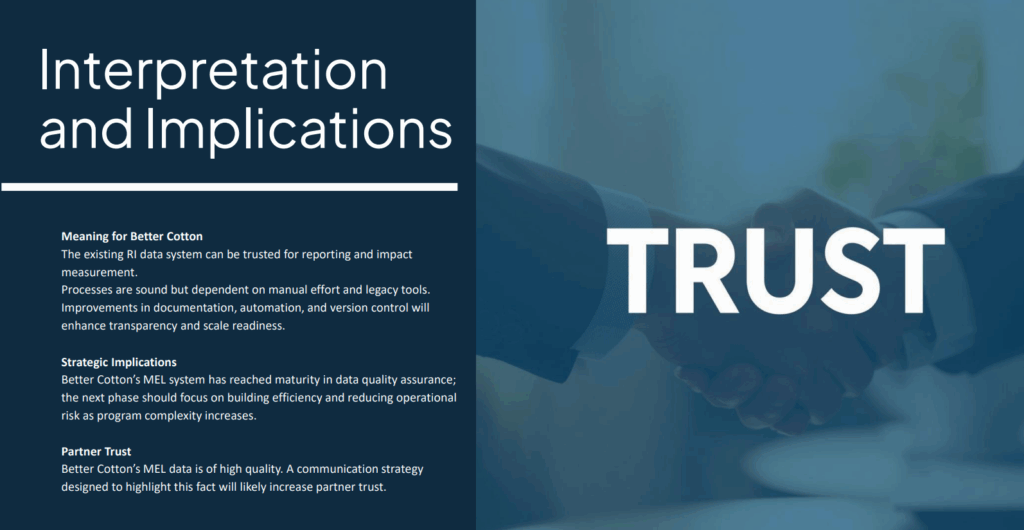

What is Results Indicator (RI) data?
BCI’s Results Indicator (RI) system underpins the organisation’s ability to measure progress against its sustainability goals, including tracking pesticide and fertiliser use, water efficiency, yields, and gender inclusion across all programme countries.
Ensuring that this data is credible and comparable is essential for maintaining stakeholder confidence and for demonstrating impact to farmers, partners, members, and donors alike.
How was the assessment carried out?
BCI’s objective was to verify whether the RI data collected across all countries are accurate, traceable, and methodologically sound, and to assess how well the system aligns with international data-quality standards.
In order to do so, it commissioned a third-party audit of its data management systems from ADC Consulting, an independent provider that helps organisations unlock the power of data, strategy, and digital tools to drive systemic impact across agriculture and food systems.
The analysis was carried out between April and June 2025 and represents the first independent technical review of BCI’s RI data processes since the system was established. It encompassed data from the 2016-17 cotton season to 2023-24 across nine countries: China, India, Tajikistan, Pakistan, Türkiye, Mozambique, Brazil, Australia, and the United States.
Together, these datasets represent the full operational range of the Results Indicator (RI) system, from long-established smallholder programs in Asia to newer large-farm reporting frameworks in Latin America and Australia.
This breadth allowed ADC to test consistency across different governance models and maturity levels of data systems, ensuring that conclusions drawn reflect global patterns rather than country-specific practices.
What were the findings of the assessment?
ADC found that BCI’s RI system is fundamentally sound. The audit identified a robust and traceable workflow that produces reliable data across countries and seasons, while also highlighting areas, particularly documentation and version control, where streamlining could further strengthen efficiency and scalability.
William Hughes, Senior Manager at ADC Consulting, explained:
“Our report confirmed that BCI’s RI data is of high quality; the organisation’s data management process is robust, transparent, and broadly compliant with international data-quality standards. Across all stages, data were found to be reliable, traceable, and reproducible. No critical weaknesses were identified, and the system’s core design and governance provide a solid foundation for accurate and repeatable reporting.”
The report found that:
Shannon Avison, Data Analysis Manager at BCI, reflected on the valuable learnings uncovered through the audit:
“ADC’s report has given us a clear roadmap for strengthening our Results Indicator data management process. We now have practical guidance on improving documentation, centralising version control, and introducing modest automation within our current SharePoint setup.”
Learn more
To read more about ADC Consulting’s audit of the Better Cotton Initiative’s Results Indicator systems, click below.
Independent review of RI data quality
You can also use the following links to find out more about working with Results Indicators and BCI’s RI Data Management Process.
Read moreThe European Parliament’s recent endorsement of the Omnibus I Simplification Package threatens to significantly weaken corporate sustainability obligations under the CSRD and CSDDD.
Read more

By Rogerio Simoes, Media & Content Manager at the Better Cotton Initiative
The Better Cotton Initiative (BCI) marked this year’s World Cotton Day with significant changes: it launched an innovative product label; it updated its logo, website, and overall design; and adopted its original name, having been known simply as Better Cotton in the past few years.
These changes may seem unrelated, but they are part of the same picture. They are connected to several steps taken recently by BCI to improve transparency, accountability, and its overall connection with members, partners, farmers, consumers, and the general public.
From the new label that now informs the presence of Physical BCI Cotton contained in a product to a name that emphasises the organisation’s role as an initiative, all that is the result of years of efforts to expand and deepen the organisation’s impact.
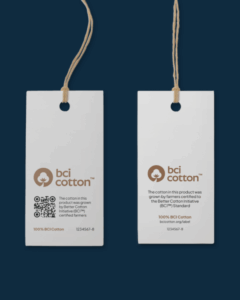

Our new product label comes out of the traceability system that has been gradually implemented since November 2023. In the past two years, we at the Better Cotton Initiative have been expanding our capacity to trade Physical BCI Cotton, traced back to its country of origin – offering brands, retailers and consumers the assurance of a commodity, BCI Cotton, produced by farmers certified to our standard.
Now, the BCI Cotton label will offer brands and retailers the ability to share with their consumers that story, on their own products. If a product sourced by a certified BCI Retailer or Brand Member contains at least 30% of Physical BCI Cotton, and the remaining up to 70% contain only other materials, that retailer or brand will now be able to share that information with consumers.
The new label, which is optional, provides the following:
Our CEO, Nick Weatherill, clearly summarised the meaning of our new product label. “In a time of increasing scrutiny around sustainability claims, global trade pressures, and shifting Environmental, Social, and Governance (ESG) priorities, transparency and accountability are more critical than ever.”
“As we celebrate World Cotton Day, our new label reaffirms our commitment to both, as part of our mission to drive measurable impact and continuous improvement in sustainability across the cotton sector.”
The BCI Cotton label comes in a year marked by another milestone. In June, during BCI’s annual conference in İzmir, Türkiye, we announced that the Better Cotton Initiative’s standard will close remaining gaps, so it is fully aligned with the fundamental principles of regenerative agriculture. While several principles of regenerative agriculture have already been followed by BCI alongside our certified farmers for years, a few elements remain to be fully implemented – and that is what the Better Cotton Initiative is now doing, with completion expected by June 2026.
None of these new steps, however, would be possible without something even more important: our impact throughout 16 years of operations, in more than 20 countries, improving conditions for over 2 million farmers. Much of this story can be found in the Better Cotton Initiative’s 2024-25 Annual Report, which goes beyond the achievements of the past year to provide a broader report of our impact over the years. You can download the report from this page.
With new label new logo, and new impact numbers that we proudly share with our community, embracing our original full name was an easy decision to make. By becoming once again the Better Cotton Initiative, we remind our farmers, members, and partners that BCI is and has always been an initiative, a forward movement committed to constantly improve sustainability in cotton farming.
Not only are we an initiative, but we are taking it too, by creating new ways of communicating with both our community and consumers – on top of the bold actions we have taken. Years ago, even though our mass balance system allowed us to achieve the scale required to support hundreds of thousands of farmers every year, we took the initiative to develop, introduce, and expand our own traceability system.
We also took the initiative to become a certification system in February of this year. The certification process, conducted by independent third parties, was another important step towards full accountability and transparency, aligning what brands and consumers increasingly demand from us with our responsibility to support farmers, their families, and their communities.
Whilst the changes above were still being implemented, again we took the initiative, by announcing that the BCI standard would become a regenerative one. Being an initiative was in our creation, has been part of our DNA since then, and it is now once again officially part of our name.
We hope our farmers, members, partners and colleagues appreciate and make good use of our changes, proudly announced on this year’s World Cotton Day. They can be certain that, behind new visual identify, name, and label, one thing remains the same: our determination to improve sustainability in cotton production, including delivering to consumers the information and the results they expect and deserve to see.
Press release: Better Cotton Initiative Marks World Cotton Day with Launch of Innovative Product Label
Our new BCI Cotton label page: What the BCI Cotton Label Means
Read moreThe Better Cotton Initiative (BCI) has launched an innovative product label which allows brands to provide greater clarity about the origin and percentage of BCI Cotton in their products.
Read more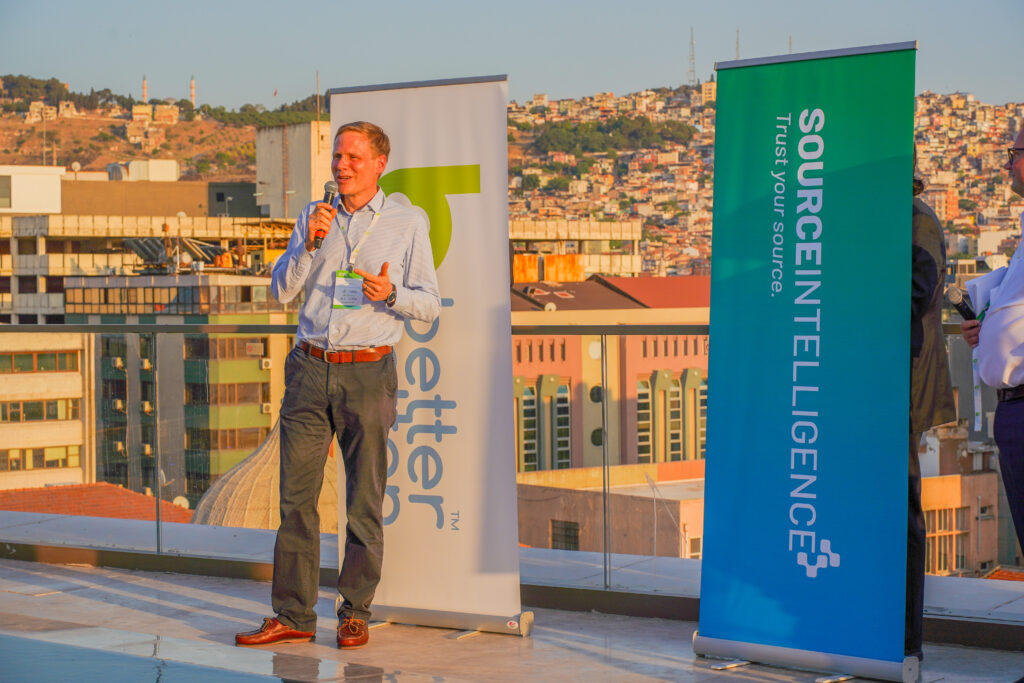

By Alexander Ellebrecht, Account Executive at Source Intelligence
Source Intelligence was Sponsor at the Better Cotton Conference 2025 in İzmir, Türkiye
At Source Intelligence, we help companies strengthen supply chain visibility and compliance through two complementary platforms. C Map enables organizations to meet complex regulatory requirements by leveraging bill of materials (BOM) data across multiple tiers of their supply chain. ChainPoint serves standards and scheme holders, supporting first-mile traceability and capturing critical data that is often difficult to obtain. We are now integrating these platforms. This will deliver deeper transparency and greater value, not only for standards organizations, members, and stakeholders, but also for shareholders. Because today, transparency is not optional anymore.
Better Cotton has taken a thoughtful, step-by-step approach to building traceability using ChainPoint. They started with ginner-to-spinner traceability, then gradually extended the scope and introduced more detailed claim types. Several years ago, the system was based largely on a mass balance approach—a method that allows Better Cotton Claim Units (BCCUs) to be traded through the supply chain while maintaining an associated sustainability claim, even if the cotton is mixed with conventional sources. In recent years, the demand for visibility has grown. More companies now want to know with certainty: “Is this 100% Better Cotton that we are buying?”
This shift has led to the adoption of segregated models, which keep Better Cotton physically separate from conventional cotton throughout the chain. These models provide higher transparency and stronger claims. It’s a journey Better Cotton is still on—and one we are proud to support.
The cotton industry is aware of its impact. We hear many farmer stories, of farmers who could improve their production with training and support from Better Cotton. Topics like irrigation, regenerative agriculture, are addressed, and it’s good to discuss this with the sector at the Better Cotton conference. These discussions help retailers and companies, at the end of the supply chain, understand the problems on the ground, while also creating opportunities for more collaboration.
With the existence of social media, companies are becoming increasingly responsible and accountable for their supply chain activities. We also see some government regulations and compliance topics, so there is really a driver for transparency. Transparency will not go away. It will stay on the agenda.
One principle I particularly appreciate is controlled transparency. This means not every piece of information is available to everyone, but rather that access is purposeful and relevant. This approach fosters trust, encourages openness, and enables more efficient collaboration.
We should be proud of how far we’ve come, but we must also keep asking: What can we do better? By applying proven quality management practices, we can work more efficiently, accelerate progress, and deliver lasting improvements. We’re also seeing strong growth in the collection and management of reliable data. Automation is making documentation less of a burden and more of an opportunity—helping people focus on insight and action rather than paperwork.
The Better Cotton Conference matters because it’s ultimately about people. Progress in supply chains depends on collaboration, and while we have many digital tools—Zoom, Teams, and others—that make connecting easier, nothing replaces the depth of understanding that comes from meeting in person.
Read more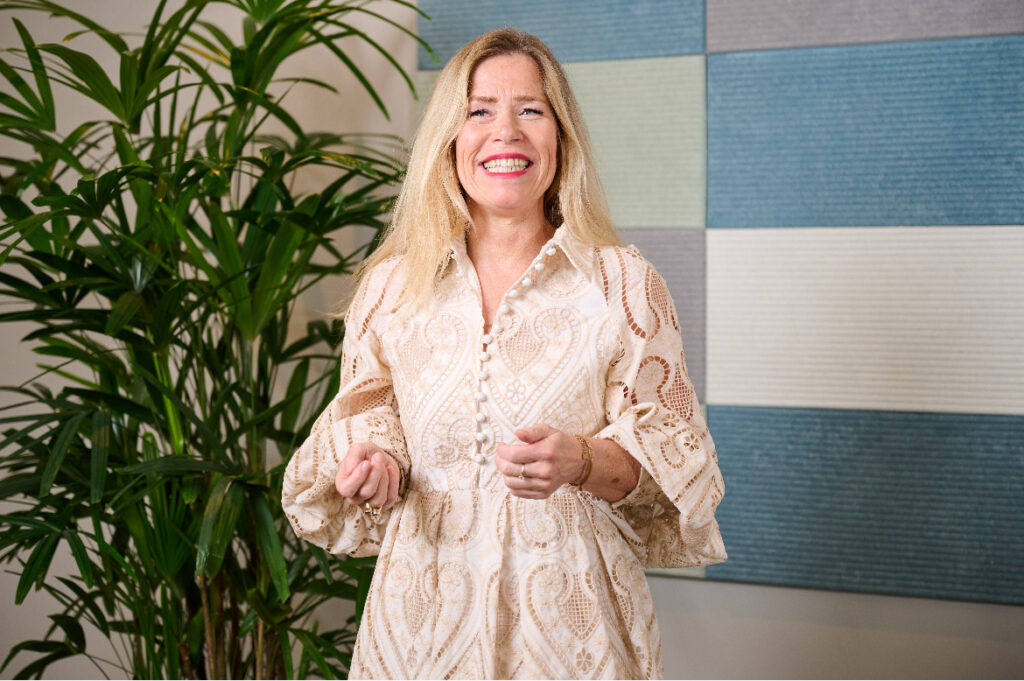

By Lonneke de Kort, Business Unit Manager, Textiles, Recycling & Alternative Materials at Control Union
Control Union was Premium Sponsor at the Better Cotton Conference 2025 in İzmir, Türkiye
In today’s textile sector, responsible sourcing is no longer a niche concept – it’s a growing expectation. As global brands, manufacturers, and suppliers commit to sustainability goals, the ability to trace raw materials back to verified sources has become essential. For Better Cotton, this means not only promoting sustainable practices at farm level, but also ensuring that cotton can be credibly traced throughout the supply chain.
Control Union plays a significant role in the Better Cotton system as an independent third-party certification body. We share Better Cotton’s vision for a more sustainable global cotton sector – one where integrity, transparency, and measurable impact are at the core.
With decades of experience in sustainability assurance, we operate in key production regions including Türkiye, India, Pakistan, Brazil, and parts of Africa, offering consistent, high-quality auditing services through local experts in local languages. This global presence enables brands and supply chain actors to benefit from working with one certification body across multiple geographies—combining consistent global standards with regional insight and responsiveness.
As one of the world’s leading certification bodies, we play a critical role in strengthening the Better Cotton Chain of Custody (CoC) system and ensuring that its core principles are upheld across diverse and dynamic supply chains.
The Better Cotton CoC framework is designed to track the journey of Better Cotton through each stage of the supply chain – from farm to finished product. It allows businesses to demonstrate that their sourcing decisions contribute to more responsible cotton production practices. As an independent assurance provider, our task is to verify that this system functions reliably and that participating sites meet the requirements defined by the Better Cotton CoC Standard.
Moreover, Control Union offers certification services across other widely recognized textile standards, such as Better Cotton, Regenagri, GOTS, GRS, RCS, and OCS, creating a one-stop-shop for brands and suppliers committed to sustainability. This integrated service offering not only streamlines certification processes but also reinforces traceability and accountability across different material streams.
Our work goes beyond confirming adherence to documented requirements – it helps build confidence in the entire system. Third-party audits offer objective validation of sustainability claims, playing an essential role as the Better Cotton CoC system evolves, particularly with the introduction of Physical Chain of Custody models. As traceability becomes increasingly important, independent assurance supports the credibility and reliability that supply chain actors and end consumers seek.
We have observed that over time, the level of awareness and engagement within the sector is growing. More and more organisations are beginning to view responsible sourcing not just as a compliance necessity, but as a long-term strategic approach. This shift reflects a deepening understanding of Better Cotton’s goals and the value of participating in a transparent, verifiable system.
With a robust global infrastructure and a strong local presence, Control Union is well-positioned at the intersection of agricultural production and textile manufacturing. In Türkiye – a major player in both cotton cultivation and textile exports – our teams carry out Chain of Custody audits across a wide range of operators, ensuring alignment with the Better Cotton CoC Standard while respecting regional dynamics.
Our impartiality is a cornerstone of our work. As a third-party certification body, we do not provide consulting or guidance for compliance. Instead, we focus solely on verifying whether facilities meet the required standards through objective and consistent evaluation. This separation between verification and consultancy is vital to maintaining the integrity and credibility of the assurance process.
The role of Control Union is particularly critical during the farm inspection stage of the Better Cotton system. Through on-site inspections and field audits, Control Union verifies that the cotton farms comply with Better Cotton’s production principles, environmental standards, and social criteria.
This ensures that the raw cotton entering the supply chain genuinely originates from farms practicing sustainable and responsible agriculture.
These farm-level controls safeguard the integrity of the entire program by preventing non-compliant or fraudulent practices from entering the certified supply chain. As such, they form the foundation for the credibility and transparency of the Better Cotton label all the way to the end consumer. This guarantees that products labeled as “Better Cotton” are genuinely produced from cotton within the certified system.
As Better Cotton continues to expand its global reach and strengthen its Chain of Custody (CoC) system, Control Union remains unwavering in its commitment to delivering credible, rigorous, and independent verification services that embody the highest standards of professionalism and integrity.
We take great pride in contributing to a system that upholds traceability, accountability, and a culture of continuous improvement across the cotton supply chain.
In alignment with Better Cotton’s requirements, certain retailer and brand members – depending on their sourcing volumes – are obliged to verify their annual Better Cotton procurement through an independent third-party audit.
At Control Union, we see our role as going beyond mere compliance checks; we act as guardians of trust, helping to secure the credibility of sustainable sourcing commitments and reinforcing the transparency that consumers and stakeholders increasingly demand.
Read more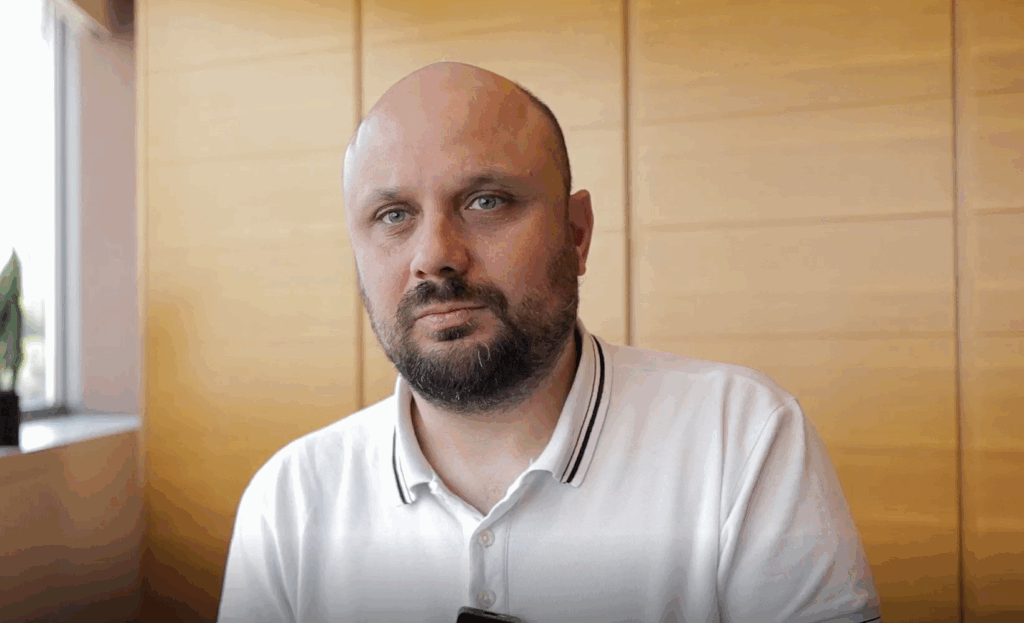

By Ali Ertuğrul, Technical and Quality Manager at USB Certification
USB Certification was Headline Sponsor at the Better Cotton Conference 2025 in İzmir, Türkiye
I’m an environmental engineer, so sustainability is at my heart. As the technical and quality manager for textile and recycling certification departments at USB Certification, I make sure the programme requirements, including those with Better Cotton, are implemented correctly.
This year, we started working in Pakistan with farm-level certification for Better Cotton, something which has been pretty exciting for us. Even though we had done farm certification before, in other countries, this is quite special–and we believe that sustainable production practices will flourish there.
The working models, especially in supply chains, are quite different from country to country. You can have bigger production areas in certain countries, like Bangladesh, or you can have a network of suppliers and subcontractors working together, as in Turkey. So, while we are doing certification, we are also guiding them towards achieving their goals in traceability, to ensure their compliance against the requirements.
Data and collective work
The biggest risk in the sustainability sector right now is greenwashing. There’s nowhere to go if we cannot back up our claims with data, with actual, factual, and verified data. But we also have to propagate that data throughout the supply chain.
In order to be able to do that, you need a technological infrastructure to ensure traceability from the extraction of the raw material–or production of the raw material–all the way to the labels, on the consumer facing product itself.
You cannot do it without data, you cannot do it without assurance, and you definitely cannot do it without in a technological infrastructure.
Different stakeholders need to work together to reach sustainability goals. First of all, we need programme ownership, assurance provider, and certification. We are part of a triangle which are interacting with the other two areas.
Programme owners set the requirements, the criteria, for the compliance of certified entities. They also assign assurance providers, so they can actually verify the system of a certification body, not only monitoring the outcome of the work that the certification bodies are doing. They also make sure the certification bodies have a mature, competent system capable of assessing the requirements of the standard–in the audit and the certification process.
Eyes on the ground
There is another responsibility: we are the eyes on the ground. If we see any deviations, if there’s any ground reality that is deviating from the standard requirements, it’s our responsibility to have that communicated to the programme owners. It is part of the monitoring, evaluationand learning cycle.
As a programme owner, Better Cotton is heavily involved with the implementation of the standard itself, through their implementation partners all over the world. That means, it also gives the standard a localised context. In that sense, it was actually good to witness such a nuanced approach to standard requirements.
With the new certification paradigm that has come up, the collaboration between the program owner and the certification body, like USB Certification, will be tighter in the coming years, thanks to the level of assurance. The level of data collaboration will increase.
Hearing from farmers
At this year’s Better Cotton Conference, the sessions brought some provocative questions into the spotlight, which I quite enjoyed. Also, this year’s conference’s motto was ‘It Starts with Farmers’, and it is always good to hear the opinions of farmers.
Another thing I enjoyed was the networking. The participants were not passively listening to the sessions, they were engaging in conversations with different kinds of stakeholders at the same time. I would say the conference has moved the mission forward.
This is an important event, as it is a hub and a ground, a chance to bring all different stakeholders into the same place. Also, a chance to reiterate what I said before, that this is a dialogue, this is a conversation. It’s also an ever-changing landscape, the market for sustainability and sustainable certification is rapidly changing. So, without engaging in meaningful conversations, we cannot do it.
This is one of the missions of Better Cotton as well, and one of the missions of this year’s conference.
Read moreA key cotton-producing country with a strong track record of innovation and sustainability in agriculture, Australia is the latest step in our traceability journey.
Read more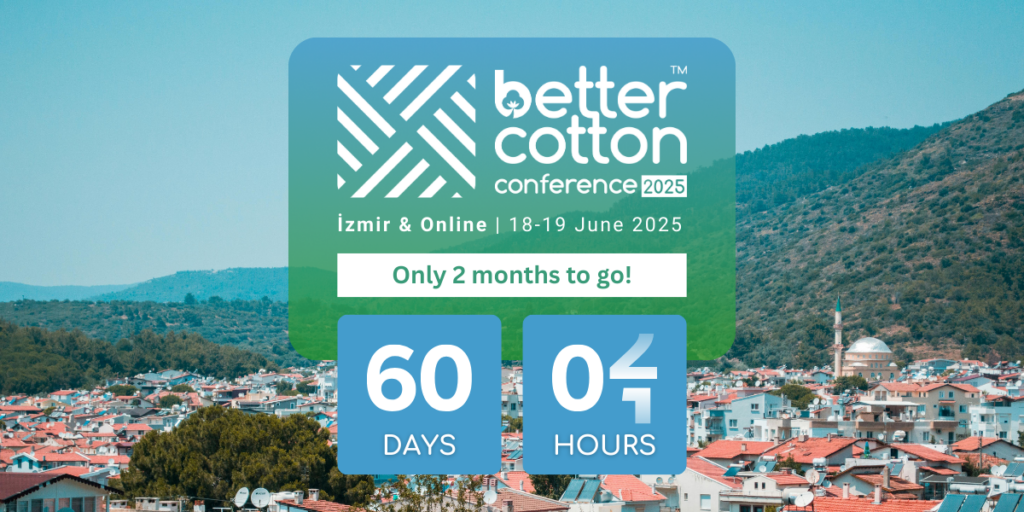

As we write these lines, our live countdown says 61 days, 16 hours, and 29 minutes… This means we are just two months from the Better Cotton Conference 2025, which takes place in the city of İzmir, Türkiye, on 18-19 June. We look forward to welcoming retailers, farmers, and other representatives of the cotton industry to this year’s event and wanted to take this opportunity to look at the busy agenda that will fill the two days of presentations and discussions – whilst we put the finishing touches to what promises to be one of the most important conferences we have held so far.
From supporting farmers and their communities to exploring how data can best help us shape the future of sustainable cotton, the 2025 Conference will come at a pivotal moment for Better Cotton and our community. With the recent implementation of our traceability programme and the launch of our certification system in early 2025, we have taken decisive steps towards greater efficiency, better engagement and improved accountability. We are now ready to take a leap towards an even more impactful Better Cotton.


Two transformative days
Our agenda reflects both our new approaches to more sustainable cotton and our solid and historical commitments. For all participants, it will represent a unique opportunity to connect with our work and to their peers’ experiences at this eventful time in the history of Better Cotton and the cotton sector as a whole. Below you can find a quick summary of the highlights of the conference, with much more yet to be announced.
Day One – Morning
Equality – There can be no path towards proper sustainability in the cotton sector without significant efforts for more equality. From the workers’ basic rights to supporting women wherever they face discrimination and restrictions, Better Cotton has intensified its efforts and searched for solutions, even in the most challenging of environments. Our plenary session will discuss livelihoods in the broader sense, but with specific targets in mind and a clear mission: to transform the lives of those working to produce our cotton. Other sessions will explore the current challenges we face as we seek to reach gender equality and secure decent work at the farm level and other stages of the supply chain.
Day One – Afternoon
Nature – If the environment is not sustainable, nothing else on our planet will be. This is a conviction that drives us in every single project and action we take in the more than 20 countries where Better Cotton operates. After lunch on our first day of debates, we will dive deeply into the most recent concerns, difficulties, victories, and future paths we need to take in order to continue to improve how cotton production interacts with the environment. We all know that the use of water must be balanced, that cotton farming must not provoke or benefit from deforestation, and that chemicals must be replaced by much less harmful or harmless pesticides. At the 2025 Conference, we will first discuss how the efforts to protect the environment can be paid for, and then explore the importance of biodiversity, discuss the potentially transformational impact of regenerative agriculture, and finally debate what we all wished we didn’t have to: how to adapt to and mitigate the already felt effects of climate change.
SCENES FROM THE BETTER COTTON CONFERENCE 2024, ISTANBUL
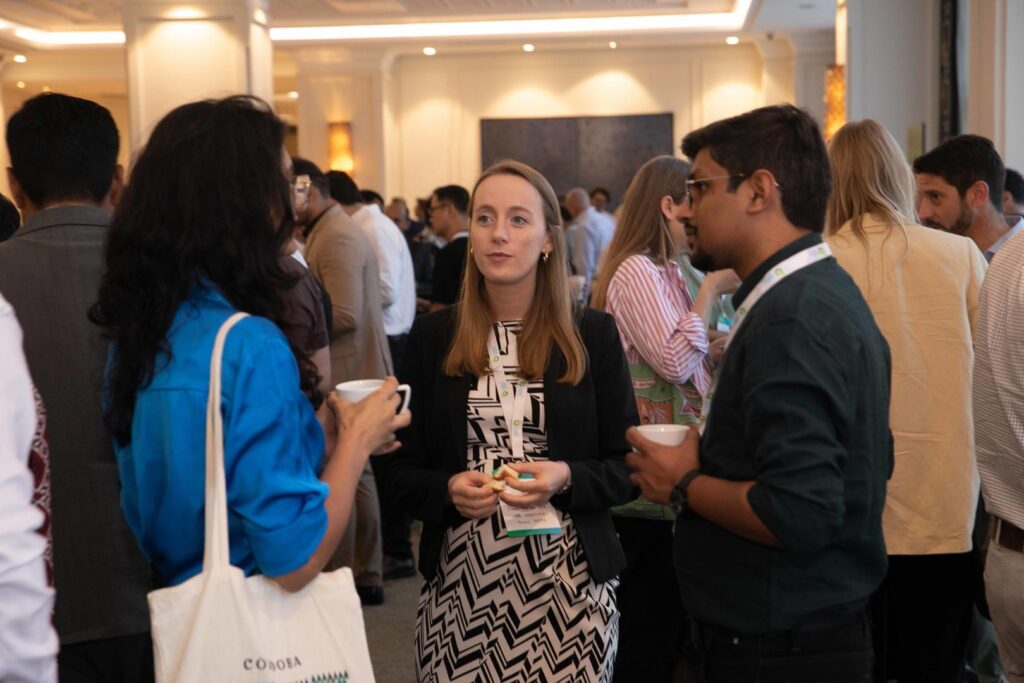

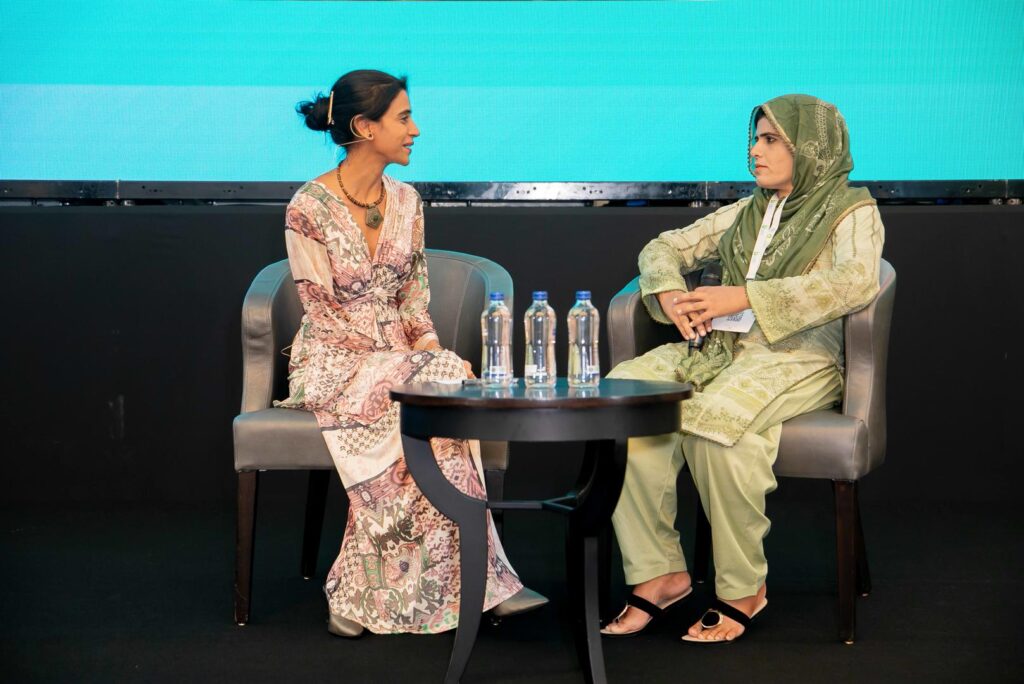

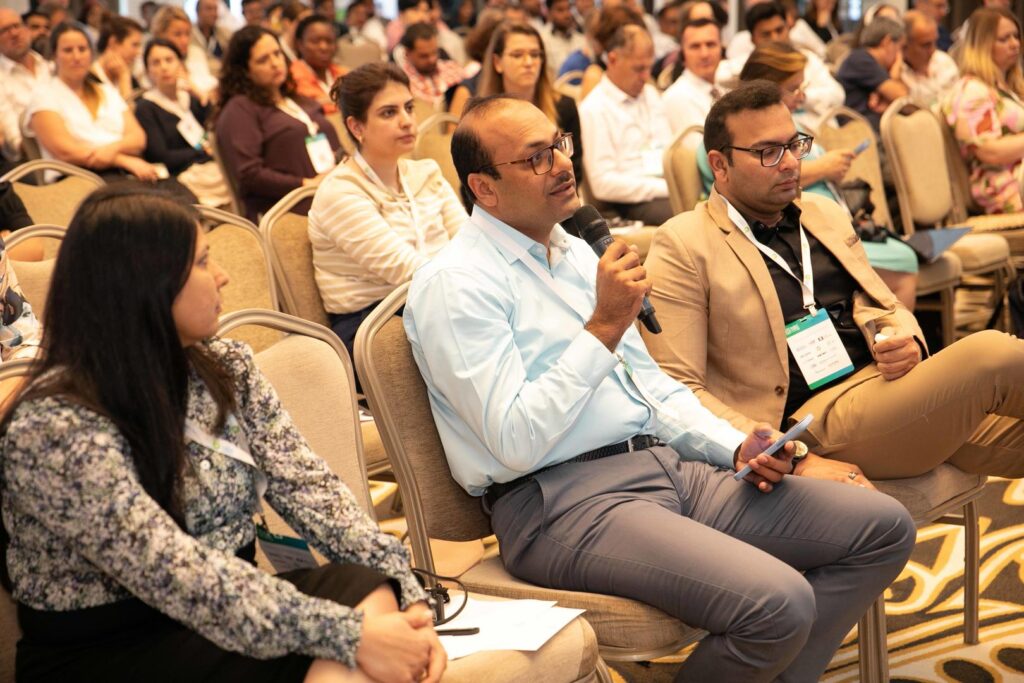

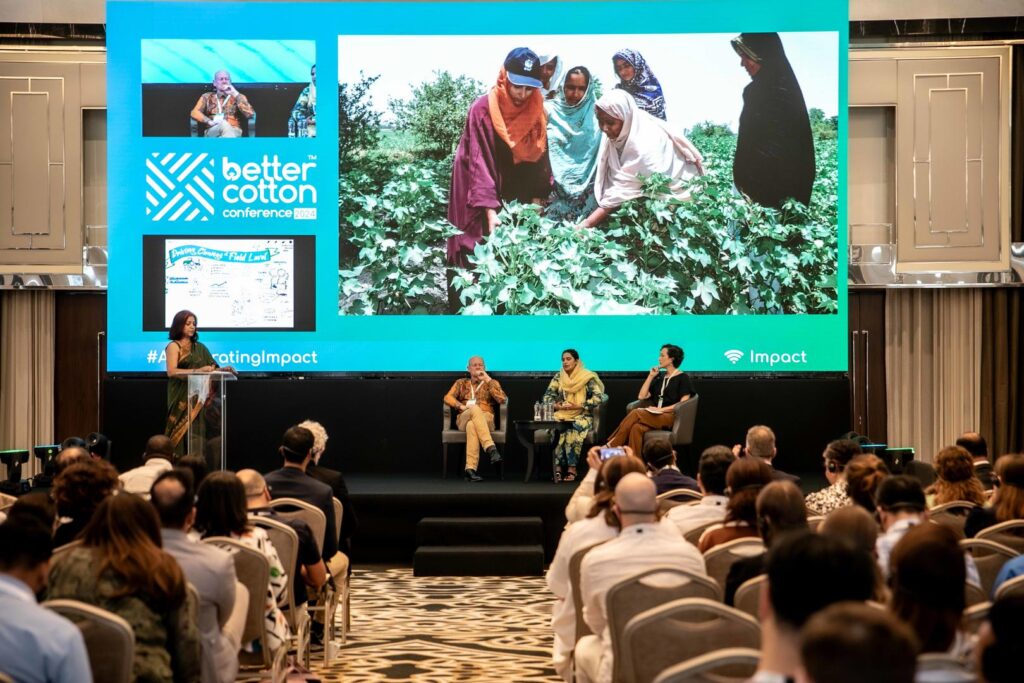

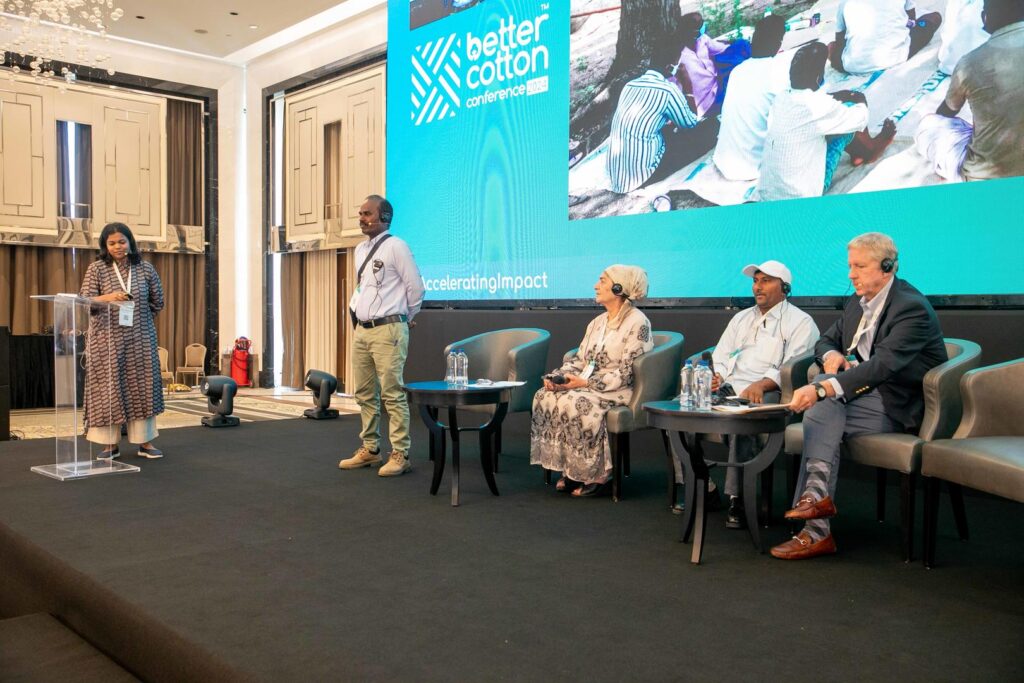

Day Two – Morning
Data for Impact – Who is afraid of technology? And who is not? Even if some of us are anxious about the change that new and emerging technologies can bring, now is the best time to be positive and embrace all the new possibilities that have been offered to our sector by data and digitalisation. The morning of the second day of our conference will explore everything that digital technology and the data it provides can do to help improving sustainability in the cotton industry, from identifying possible issues, so they can be solved, to highlighting achievements. This will also provide us with the opportunity to understand how digital capabilities will ensure the success of our Traceability programme. After these discussions, we are confident that everyone in the room should be convinced that, when used well, technology can be one of our best friends.
Day Two – Afternoon
It is all about the future – At Better Cotton we are always looking ahead, finding new ways of improving our actions around the world towards more sustainable cotton. The final sessions of our 2025 Conference will explore the new paths to be taken as part of our mission: certification, engagement that involves different commodities, and regenerative agriculture are all part of our next priorities, and in İzmir we will be able to share all of that with you and receive your invaluable contributions to make our future plans a reality.
The next two months will fly by, so get ready! We look forward to welcoming you at Better Cotton Conference 2025.
Read moreIn its inaugural meeting, the Multistakeholder Dialogue brought together different sectors to share experiences and challenges to improve sustainability in cotton production.
Read more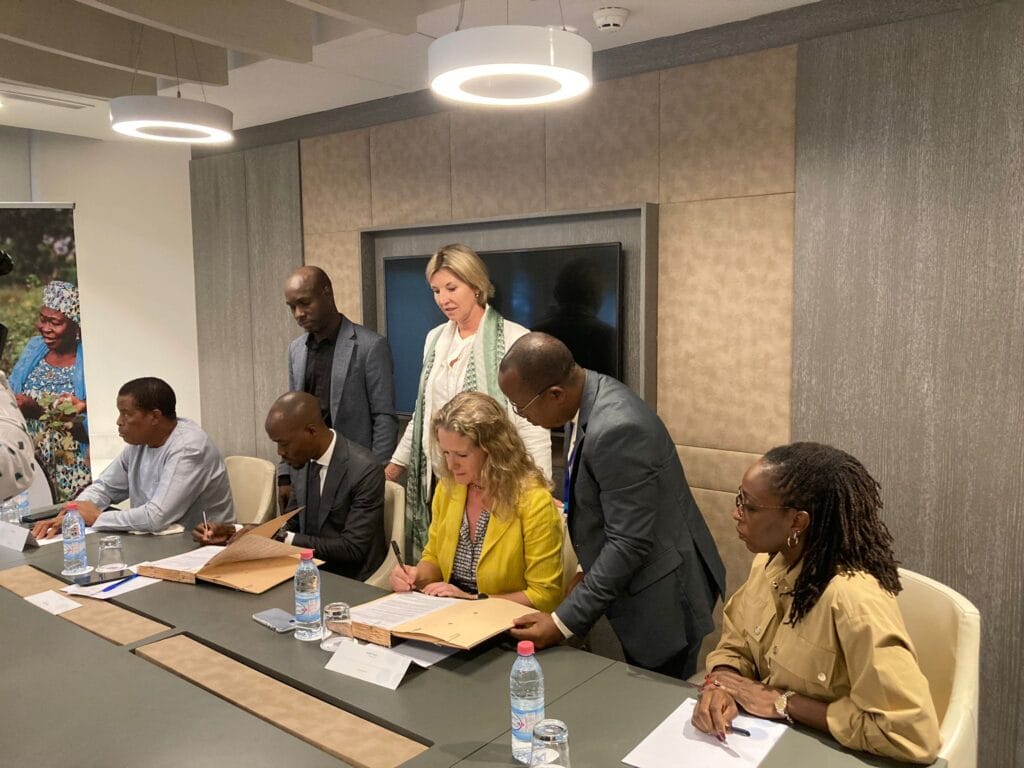

Better Cotton has launched a new programme in Benin to support the production of more sustainable cotton in West Africa.
The programme will aim to engage more than 200,000 smallholder cotton farmers in order to embed sustainable farming practices, improve livelihoods and help them adapt to the effects of climate change.
As Better Cotton’s presence across Africa continues to grow, so too does the movement towards more sustainable cotton production. There is incredible appetite for change on the continent and we’ll work with partners new and old to leverage that.
The Interprofessional Cotton Association of Benin (AIC) will serve as a Strategic Partner for the Better Cotton Programme. The AIC manages both farming and cotton ginning bodies and more broadly facilitates relations with the sector’s stakeholders across Benin.
As Strategic Partner, the AIC will lead the establishment and implementation of an impactful Better Cotton Programme and help drive engagement with the country’s farming communities and other stakeholders.
The start of a Better Cotton Programme in Benin is a matter of national initiative supported by the entire cotton sector and managed by the Interprofessional Cotton Association. The implementation of this programme will help our valiant producers strengthen their resilience by introducing more sustainable production practices.
The agreement was formalised at a multistakeholder meeting in Cotonou, Benin, on 8 October where both organisations met to discuss the opportunities and challenges in cotton farming and agriculture more broadly.
Benin is Africa’s second largest cotton producing country after Mali. In the 2022/23 season, it produced more than 580,000 metric tonnes (MT) of cotton, according to government figures.
Better Cotton operates programmes across Africa in Mozambique, Egypt, Mali and Côte d’Ivoire.
Read more